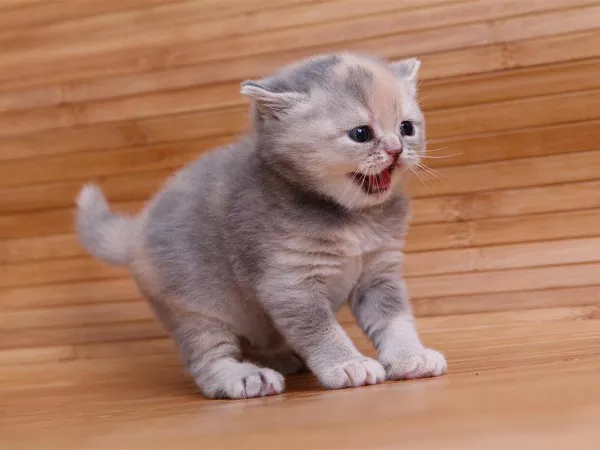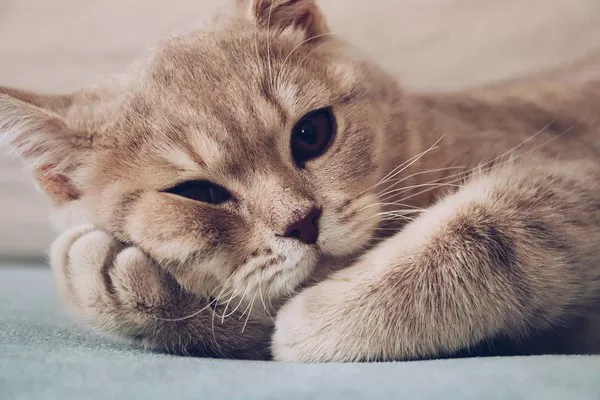How to help a constipated 2-week-old kitten? This question often leaves concerned pet owners seeking guidance to ensure the well-being of their tiny feline companions. Constipation in such young kittens can be a serious issue, requiring prompt attention and appropriate measures. In this comprehensive guide, we will explore the reasons behind constipation in 2-week-old kittens and provide practical steps to alleviate their discomfort.
Understanding the Basics:
Before delving into the solutions, it’s crucial to understand the basics of a 2-week-old kitten‘s digestive system. At this tender age, their organs are still developing, and any disruption in their routine can lead to constipation. The mother cat‘s grooming behavior, or the lack thereof, can also impact the kitten’s ability to eliminate waste.
See Also:Can a 2-Week-Old Kitten Drink Water? You Need to Know
How Long Can a 2-Week-Old Kitten Go Without Pooping?
One of the initial concerns for pet owners is determining how long a 2-week-old kitten can go without pooping. Generally, kittens of this age should pass stool multiple times a day. However, if a kitten hasn’t had a bowel movement for more than 24 hours, it is a cause for concern. Prolonged periods without defecation can lead to discomfort and potential health complications.
Will a 2-Week-Old Kitten Poop on Its Own?
Contrary to older cats, 2-week-old kittens might struggle with the natural instinct to eliminate waste. Unlike adult cats, they are still learning to coordinate their bodily functions. In some cases, a 2-week-old kitten may require assistance to initiate the defecation process. Understanding their limitations is crucial in determining when intervention is necessary.
How Do I Get My 2-Week-Old Kitten to Go to the Bathroom?
When faced with a constipated 2-week-old kitten, pet owners often wonder how to encourage them to go to the bathroom. Gentle stimulation can be employed by using a soft, damp cloth or cotton ball. Gently stroke the anal area to mimic the mother cat’s licking behavior, promoting the kitten’s natural instinct to defecate. Be patient and repeat the process until the kitten successfully eliminates waste.
Dietary Considerations:
Ensuring an appropriate diet is essential for preventing constipation in 2-week-old kittens. If the kitten is solely reliant on formula, ensure it is a high-quality milk replacer specifically designed for kittens. Additionally, consider consulting a veterinarian to explore supplementary feeding options or adjustments to address any nutritional imbalances contributing to constipation.
Hydration Matters:
Adequate hydration is crucial for maintaining a healthy digestive system. If a 2-week-old kitten is not receiving sufficient fluids, it can contribute to constipation. Ensure that the kitten’s formula is prepared according to the manufacturer’s instructions, and monitor their overall water intake. If dehydration is suspected, seek immediate veterinary attention.
What Should 2-Week-Old Kitten Poop Look Like?
Understanding the characteristics of a healthy bowel movement in a 2-week-old kitten is vital. Typically, the stool should be soft, yellowish in color, and well-formed. If you notice any abnormalities such as hard, dry stool or changes in color, it could indicate an underlying issue. Regular monitoring of the kitten’s feces can provide valuable insights into their digestive health.
When to Seek Veterinary Assistance:
While home care measures can often resolve mild constipation in 2-week-old kittens, there are instances where professional intervention is necessary. If your efforts to alleviate constipation prove unsuccessful, or if the kitten displays signs of distress, such as lethargy or loss of appetite, it is crucial to seek prompt veterinary assistance. A veterinarian can conduct a thorough examination and recommend appropriate treatments based on the kitten’s individual needs.
Preventive Measures:
Preventing constipation in 2-week-old kittens involves a proactive approach to their care. Establish a consistent feeding schedule, provide a warm and comfortable environment, and monitor their bowel movements regularly. Introducing gentle stimulation after each feeding can also aid in maintaining regular elimination.
Conclusion:
In conclusion, addressing constipation in a 2-week-old kitten requires a combination of understanding their developmental stage, implementing appropriate care measures, and seeking veterinary assistance when necessary. By staying vigilant and responsive to the needs of these tiny feline companions, pet owners can ensure the well-being and happiness of their newest family members.
Related Topics:
My 2-Week-Old Kitten Is Not Pooping: You Need to Know
Nurturing a 2-Week-Old Kitten: A Guide for Feeding Frequency
Can 2-Week-Old Kittens Survive Without a Mother? You Need to Know























